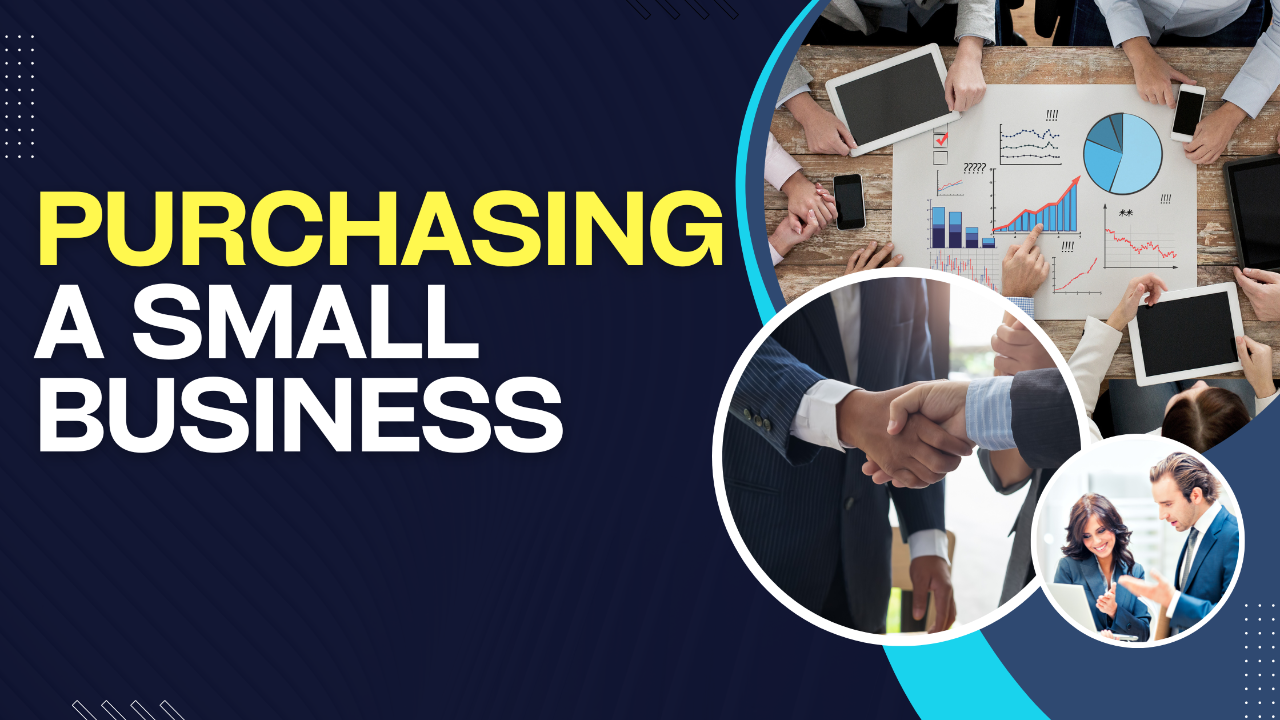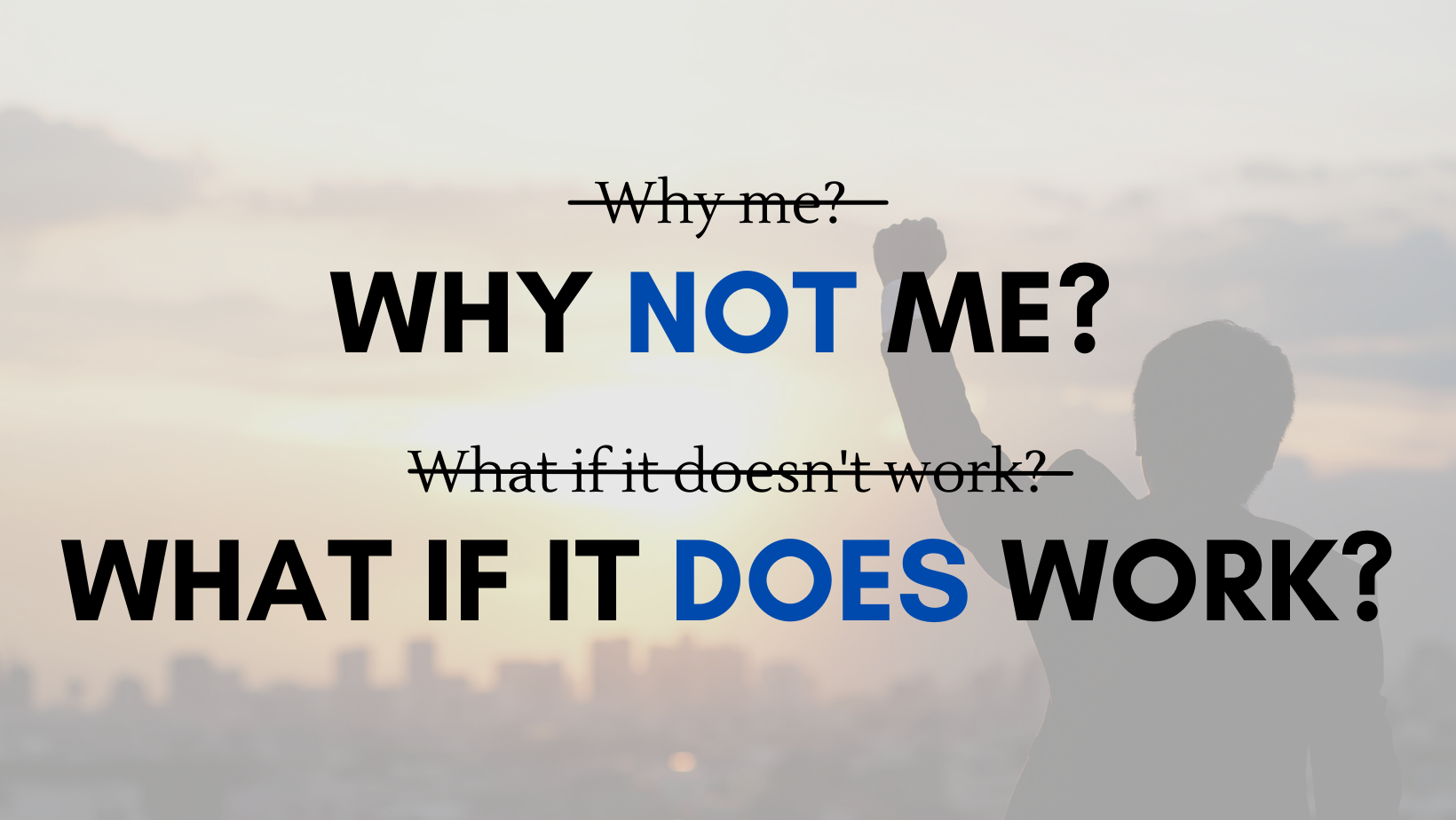Purchasing a Small Business: Getting Started

Do you dream of being a business owner? You're reading this, so it's probably safe to assume the answer is yes. What does that look like to you?
When people dream about being a business owner, they often envision starting one from the ground up. They formulate a business model, create a plan, put in a lot of legwork and research, not to mention blood, sweat, tears, and most of all…money. But there's no guarantee of success. In fact, 20% of small businesses will fail in their very first year. (Most people like to forget about that part.) It can be a gamble and quite a bit of work.
What you might not realize is that there are ways to become a small business owner without starting from scratch. It is possible to purchase already-established businesses using creative financing solutions that require very little to no money upfront and can start generating income for you almost immediately.
It sounds too good to be true, right? If it's that simple and lucrative, then why isn't everyone doing it?
Easy: Because not everyone has the motivation, the drive, the passion, or determination to make it happen. Because even though the concept itself is simple, the actual execution requires you to roll up your sleeves and put in the work.
Einstein himself said that genius is one percent inspiration, 99 percent perspiration. This book is your one percent; it will inspire you to go out and achieve your dreams and give you the tools and resources you need to make them happen. The other 99 percent? Well, that's all up to you.
Can I Really Buy A Business?
Before we go any further, we think it's essential that you stop here and do a quick check-in with yourself. If your brain is already firing off a thousand and one reasons why this could work for someone else but not for you, that's a problem. We need to shift you out of that mindset. Otherwise, everything you're about to read and learn will be discolored by self-doubt. We want you to go into this with an attitude of Yes, You Can.
We don't mean "just think happy thoughts" or "sending you positive vibes" when talking about that shift. There's a time and place for that; this isn't it.
We're talking about training your mind to believe that you can do more.
The fact that you're here shows you've already made an important first step toward achieving your goal. You're about to embark on a path that many others dare not. You will face challenges and setbacks and do things that your friends and family might think are crazy. You're going to have moments where you think you're crazy. You'll want to give up a million times and return to the "security" of your 9-5.
This is all normal. And it's natural to question yourself; you'll probably do quite a bit of it. You'll wonder why you ever thought you could make this work.
It's OK to question yourself but ask the RIGHT questions.
Stop asking why me? Start asking why NOT me?
Stop asking, what if it doesn't work? Start asking, what if it DOES work?

Mind over matter. Remember, if you believe you can do something, you're already halfway there.
And once you've decided that Yes, You Can, you need to determine WHY.
Having a WHY is one of the most important strategies to have in your toolbelt when working toward a goal. This probably isn't the first time you've been told this, and it probably won't be your last - but that's because it is proven to work. And who doesn't want to invest in something with a proven track record?
WHY do you want to be a small business owner?
WHY do you want to be an entrepreneur?
WHY do you want something different for your life?
Maybe you want to escape the corporate ladder. Maybe you want more control of your time to spend with family or travel. Maybe it's financial independence or a legacy to leave for your children. Maybe you want the freedom of being the CEO of your own life.
Your WHY can be anything, but it must be meaningful enough to push you through when times get tough. If you don't have a strong reason, you'll jump ship when the waters get rocky.
Why Buy a Business?
So now that you've established why YOU want to buy a business, let's talk about WHY you should buy a business instead of starting one.
There are four main answers to this question, but we'll start with the simplest one first: Because it's there.
It's all about supply and demand, and right now, there are approximately 2.5 million small businesses available for sale, yet only 1 out of 10 will sell over 12 months. And it's not because they are tanking or hemorrhaging money, and the owners are looking to bail. Quite the opposite, actually.
The fact is that 10,000 Baby Boomers are retiring each day. 19% of them own a small business, and 78% of these businesses are profitable. (This makes them the most profitable age group of small business/franchise owners.) That means every day, approximately 1,400 opportunities to purchase a profitable business are added to the market.
There's a chance we'll never see an opportunity like this again in our lifetime.

Reason number two to consider purchasing an established business is all about Time and Money. Starting a new business can require a lot of both.
As we mentioned, 20% of new businesses fail within the first year. By year five, 50% of them have closed up shop. And a whopping 96% fail within ten years. It can take a few years even to turn a profit, and if (or when) you can pay yourself, it will probably be a median salary ($46-$58 annually) for working over 50 hours per week.
Some food for thought:
If you dream of starting your own business, can you afford not to pay yourself initially?
Are you willing to invest your life savings into something that might leave you flat broke?
Could you realistically hold down a full-time job to pay the bills and devote 50+ hours a week on top of that to get your business off the ground?
We're not saying it can't be done; there are many success stories. We're just saying this way isn't the only way.
The third reason is that purchasing a business can potentially open up immediate passive (and usable!) income streams. Let's say you have a business that generates $120,000 annually, and your purchase agreement requires you to pay $40,000 a year on the loan. That leaves you with $80,000, which you can reinvest to grow that business - or buy or start another one.
And finally, the fourth reason purchasing a business is a good investment is that you know it works. They already have systems in place. They've already worked out the kinks. They have the equipment, the space, the clients, and the employees required to turn a profit. You could even offer the owner to stay on as a consultant for the first year to ensure a smooth transition. And from there, you have the opportunity to bring your fresh perspective, energy, and ideas to help it grow to new heights.
Things To Consider Before You Buy a Business
As we said, the concept is simple, but there's still a lot that needs to go on behind the scenes to ensure you're making a wise investment decision. Don't throw yourself at the first opportunity that presents itself; they're not all home runs. We are trying to work smarter, not harder - and that means doing your research, weighing the pros and cons, and making an intelligent and informed decision. Like anything in life, a great reward also comes with a significant risk, and there are things you should consider before signing on the dotted line.

- Is there cash flow? If you're buying an asset-heavy business, but they don't have cash coming in, you are essentially starting a business.
- What's the competition like? Can their product or service be easily duplicated? Or have they differentiated themselves enough where there's little risk of copycats?
- Do you have any knowledge of the business you're buying? If not, you might want to consider bringing in a partner who does or find a solid operator to run the day-to-day.
- What is their employment team like? Will they be open and receptive to changes? Can they be offered a buy-in to stay on? Or will you need to make (and therefore train) new hires?
- Is the business a "personal brand?" If you're purchasing someone's name, and that person has been the sole point of contact, it's likely their customers are relationship-based and do repeat business because of that reason. It will be harder to take over a real estate agency run by one realtor instead of one where multiple realtors operate and do business.
People You Need (and don't need) On Your Team
Being an entrepreneur doesn't mean you are doing everything on your own. To be successful, you need to surround yourself with successful people who are aligned with your goals and can help you achieve them. And that means having a solid team of specialized professionals who can help make each investment successful.
Members You Need:
- Banker
- Attorney
- Accountant
Members You Could Need:
- Operator - hire someone to handle the day-to-day operations if you cannot.
- Partner - working in tandem with someone who has different skills can be a tremendous asset and alleviate some of the workloads.
- Realtor - can help if real estate is involved.
- Business Broker - not required, though they sometimes come with the deal. If you have one you've worked with in the past that you trust, you could consider using their services, but it's optional.
- Insurance Broker - you may want someone in your corner to protect your assets and look out for liability concerns.
Members You DON'T NEED:
- Investment Bankers - they're more valuable to the seller, not the buyer.
- Valuation Expert - remember, you're buying the business for the profit they generate. Even if it is asset-heavy and you're looking to borrow against its worth, the bank will do their own valuation, and theirs is really the only opinion that matters.
Tips for Finding Your Team
When searching for members to join your team, don't just pick the first name that pops up when you search "Attorney" online. Ask around and get referrals. Does your current financial advisor know a good accountant? Who has helped others close similar deals? Stay away from generalists; a jack-of-all-trades is not what we want. Screen thoroughly and treat it like a job interview. Play your "candidates" against each other to create competition to drive up the value they offer or drive down their price. Remember, it's all about surrounding yourself with people who will help you meet your goals.
Are You Ready to Buy? Here's How to Prepare
Now that you have an outline to follow and you're ready to assemble your team and make your first purchase, here are some additional tips to help you prepare:

- Start mentally preparing. We discussed this earlier about deciding your WHY, and now it's time to write it out. Be as specific as possible. Read it every day. Have it memorized so you can recall at a moment's notice when you're ready to throw in the towel. Start telling yourself, Yes, You Can.
- Write out a personal Profit & Loss Statement. Know exactly what assets you have to work with, what money is coming in, and what expenses are going out.
- Join a Mastermind Group. Get support, advice, and encouragement from like-minded professionals.
- Set measurable goals. Like hikers scaling Mt. Everest break their ascent into manageable sections, your goals should also be designed to motivate and create accountability. As Tony Robbins says, "setting goals is the first step in turning the invisible into the visible."
- Spread the word. It feels safer to play things close to the vest in case you should fail, but social pressure can be a valuable motivational tool. So share what you're doing. Tell your friends, family, and colleagues. Post it on social media. When people know what you're up to, they'll ask questions, and you'll want to have a good answer for them.
- Get your house in order. You're going to be hyperfocused at the beginning, and you need to set expectations for yourself of what you can reasonably commit to during this time. That could mean bringing your family into the loop, so they know you will be busier than normal or hiring someone to make yard work off your plate.
Business ownership isn't for everyone, but it is for anyone who has the tenacity, the vision, and the motivation to create a better and different life for themselves.
Figure out your WHY, do your research, assemble your team, and get ready to turn your entrepreneur dreams into reality.



